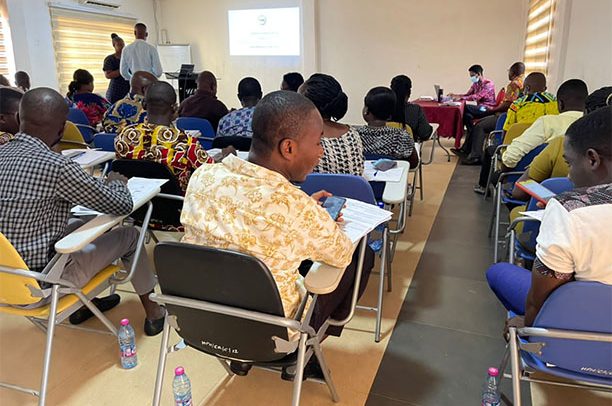The Food and Drugs Authority (FDA) and the German International Agency (GIZ) have trained 328 health professionals made up of doctors, pharmacists, and nurses in vaccine safety.
The participants formed part of the Institutional Contact Persons in different facilities across the 16 regions who work closely with the FDA as focal persons.
They are from government hospitals and Christian Health Association Ghana-run facilities.
The objective is to heighten knowledge and scale down vaccine hesitancy in the country.
The participants were trained on pharmacovigilance and vaccine safety monitoring systems in Ghana, vaccine development and effectiveness, basic concepts of Adverse Events Following Immunization [AEFI], AEFI surveillance and management, and how to identify and manage AEFI.
“When someone comes to you after the jab that they are dizzy, have a swelling, a headache, what are you supposed to do? This is why training them on how to surveil, report and manage adverse events following immunization is crucial”, said the FDA Regional Head of Bono Region who is also in charge of Ahafo and Bono East Regions, Akosua Amponsaa Owusu.
She said, “each region has a six-member team made up of clinicians, pharmacists, lab technicians, FDA. If there is an adverse effect, you need to investigate and then report to the technical advisory committee at FDA headquarters to determine causality and then advise on what to do.”
The training hopes to bridge the knowledge gap in vaccine development and administration so healthcare professionals are better equipped to convince patients to take vaccines and also serve as trainers of trainees for colleagues in their institutions of work.
“When people take for instance the COVID-19 vaccine, they react, no matter how small, healthcare professionals must report. If I come with a headache, you just don’t say this is nothing and if you sleep small, it’ll go.
Just take the needed information because that also helps in the vaccine redevelopment. We need this concrete evidence which comes together as data to determine whether for instance vaccine must be readjusted for Africans”, said Akosua Amponsaa Owusu.
A participant, Kwaku Nimoh-Boakye a pharmacist with the Sene District Hospital recalled how hesitant people are to take the COVID-19 vaccine with some chucking it down to how swift its development was.
He said, “we were taught how COVID-19 vaccines were developed, which leveraged on existing knowledge as far as vaccine development was concerned. It is not that they did anything adhoc. I must tell you that even in my health facility, some health workers are hesitant to take the jab due to safety concerns. But having had this training, I can go back and convince my colleagues as well as the public. Also when there are any adverse events after the jab, we have been taught how to take down the report using the Med Safety App. This will help strengthen public confidence”.
Another participant, Miriam Nkrumah, a Disease Control Officer at Dawadawa Health Center was also happy stating, “you don’t just pick a vaccine and start immunization. You must check the date of manufacture and other important information. Also, it is wrong to tell mothers to give their children paracetamol before coming for the six childhood killer disease immunization. We also now know and can confidently report on adverse events by telling mothers not to sit at home whenever they notice abscess after immunization but to bring the children back to the facilities for care”.


